Today we released new independent research which investigated the gap between patients demand (and desire) to take control of their own health – and the accessibility of digital and mobile tools to do so. Interestingly, up to 85 percent of those with chronic conditions surveyed are eager for digital tools; however, only one third are currently using mobile apps or other methods to manage their conditions.
This study confirms the trend of the modern patient – those who want to take a more central role in monitoring their health. It also corroborates findings we published last year demonstrating that a range of intervention strategies is necessary to improve medication adherence across patient populations.
The key findings from the research are detailed below. Not only will providing digital tools help patients better manage their health, it will also improve outcomes by arming both patients and doctors with more relevant, individualized information.
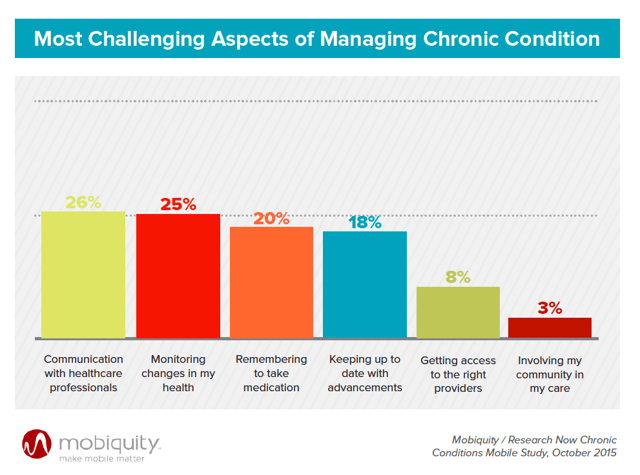
When asked about the most challenging aspects of managing their conditions, 26 percent of respondents agree that finding direct means of communicating with health professionals presents the biggest hurdle.
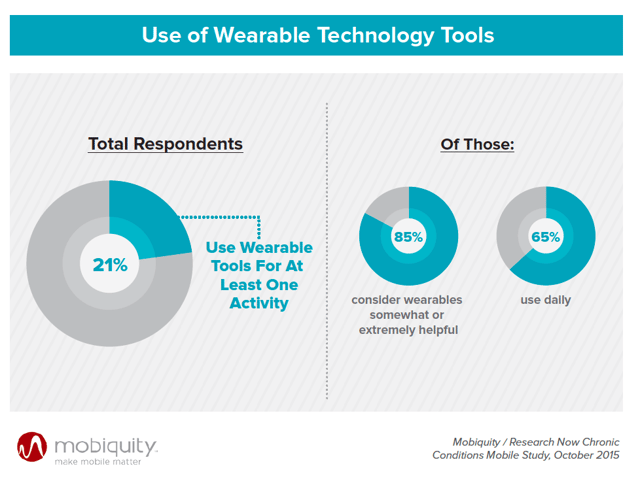
While only 21 percent report using smartphones, apps or wearables to manage their conditions today, most (85 percent) of those patients claim wearables are helpful as a healthcare tool.
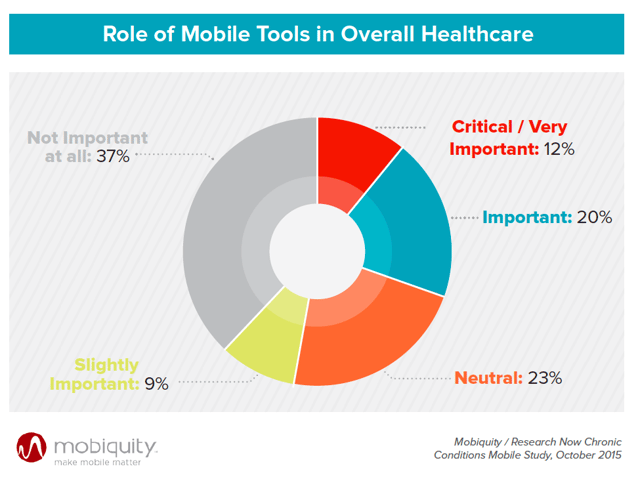
As to the role of mobile tools in their overall healthcare, a total of 40 percent of respondents feel mobile tools play an important role.
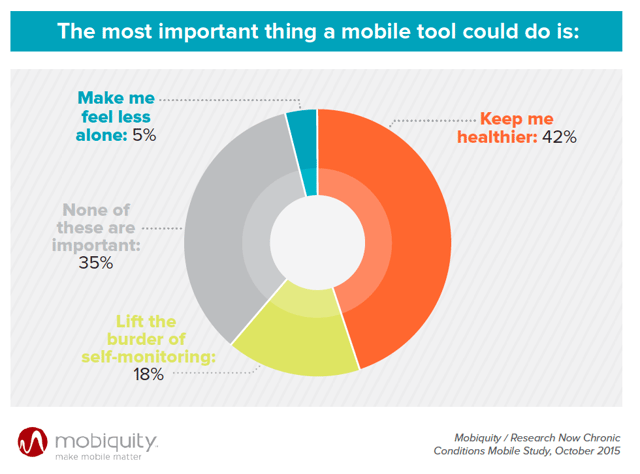
When asked the most important thing a mobile tool could do to help manage their chronic conditions, respondents see great potential in mobile keeping them healthier, and lifting the burden of self-monitoring; as well as making them feel less alone.
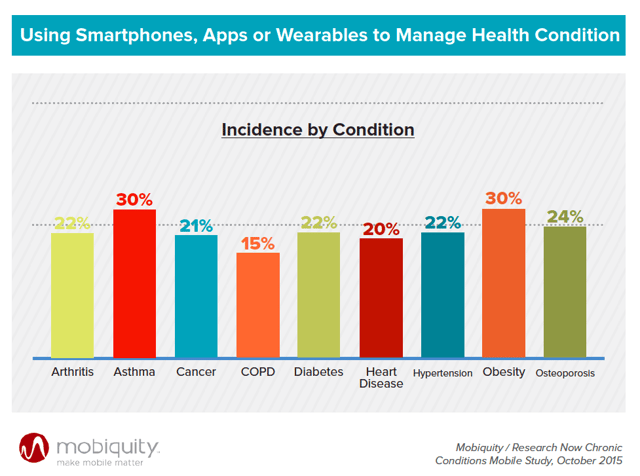 The people most likely to use smartphones, apps or wearables to manage their health conditions are those patients managing asthma (30%) and obesity (30%).
The people most likely to use smartphones, apps or wearables to manage their health conditions are those patients managing asthma (30%) and obesity (30%).
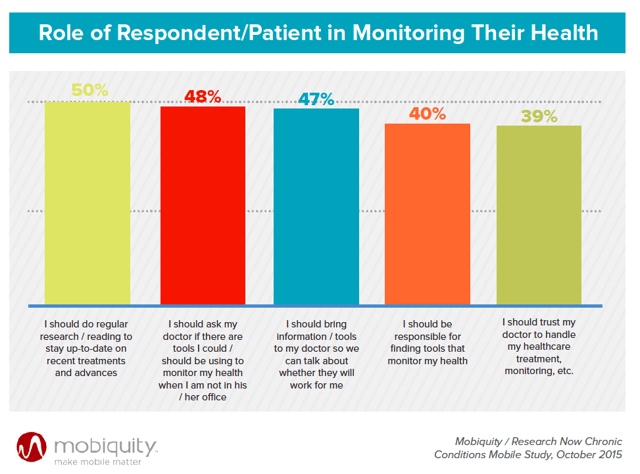
Respondents overwhelmingly put themselves at the heart their healthcare, with 89 percent of patients placing great importance on managing their conditions on their own. Many patients now believe in taking on a more central role in monitoring their health.
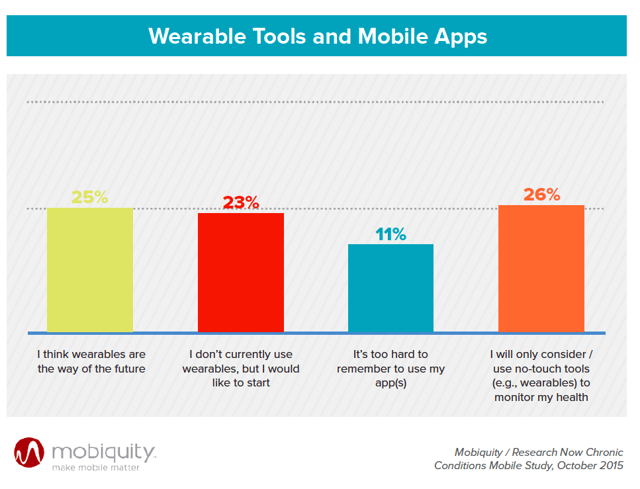
Finally, when it comes to the attitude toward wearables, it appears that in the perspective of patients with chronic conditions, these mobile healthcare tools have a bright future ahead.
We believe that addressing customer challenges gives you opportunities to delight. Using our proprietary Friction Reports and strong industry expertise, we dig deep into customer sentiment and create action plans that remove engagement roadblocks. The end result is seamless, relevant experiences that your customers will love.